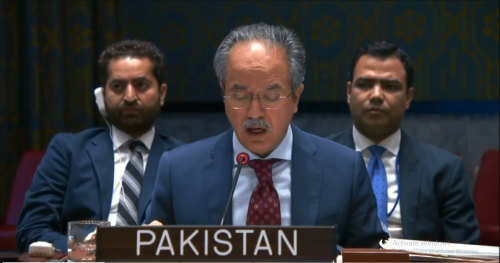KABUL: Afghan President Hamid Karzai has rejected a provision of a US-Afghan security pact, putting the entire deal in jeopardy just days before the country's elite gather to debate it, a senior Afghan official and a Western diplomat said.
The question of whether foreign troops will be able to search Afghan homes after Nato's combat mission ends next year has long been a sticking point of an agreement setting out the terms under which remaining US forces will operate there.
But in a series of meetings over the weekend the enter-and-search issue emerged as the biggest roadblock facing the security pact as Karzai dug his heels in, the Afghan official, who has been close to the talks, told Reuters.
Without an accord on the Bilateral Security Agreement (BSA), Washington says it could pull out all of its troops at the end of 2014, leaving Afghanistan's fledgling security forces on their own to fight the Taliban-led insurgency.
Two years ago, the United States ended its military mission in Iraq with a similar "zero option" outcome after the failure of talks with Baghdad, which refused to guarantee immunity to US personnel serving there.
The United States is concerned that as campaigning intensifies for Afghanistan's presidential election next April, it will be increasingly difficult to broker a security pact.
"They want a window left open to go into Afghan homes, but the president does not accept that - not unilaterally and not joint," the Afghan official said, referring to house raids by U.S. troops either on their own or with Afghan forces.
The US embassy and Nato headquarters in Kabul declined to comment, but a Western diplomat in Kabul with knowledge of the talks confirmed the two sides had reached an impasse.
"It's a very tense time," the diplomat said.
"No Flexibility"
On Thursday, a five-day national gathering of the country's political, tribal and other elites, called a loya jirga, will begin to debate the BSA in Kabul.
If an agreement on the pact is not reached by then, Karzai may tell the meeting in his opening address that he does not agree with the article about house searches, the official said.
"If the jirga becomes about that one article then it risks seeing the entire document rejected," the Afghan official said.
Talks stalled over the house-search issue during two meetings Karzai held at his palace with US Ambassador James Cunningham and Nato's commander, General Joseph Dunford.
"From our side there is no flexibility on this issue of allowing Americans to search Afghan homes, because this is more important than jurisdiction," the Afghan official said.
Jurisdiction refers to giving all American service members in Afghanistan immunity from Afghan law, another US demand that has been resisted by Karzai.
The issues of jurisdiction and unilateral military operations by US forces have been the main bones of contention in the months-long negotiations over the security agreement.
The question of house searches, which have sometimes led to civilian deaths, is a highly charged one that has contributed to the rifts between Karzai and foreign forces in an increasingly fractious relationship.
The United States wants to be able to conduct such searches to continue targeting al Qaeda and other militants in Afghanistan. Karzai is concerned that the hated searches could sap support for the government and foreign troops who stay on.
Another meeting between Karzai, the US envoy and the Nato commander was expected on Monday, though the official said there was little hope of a breakthrough.














































